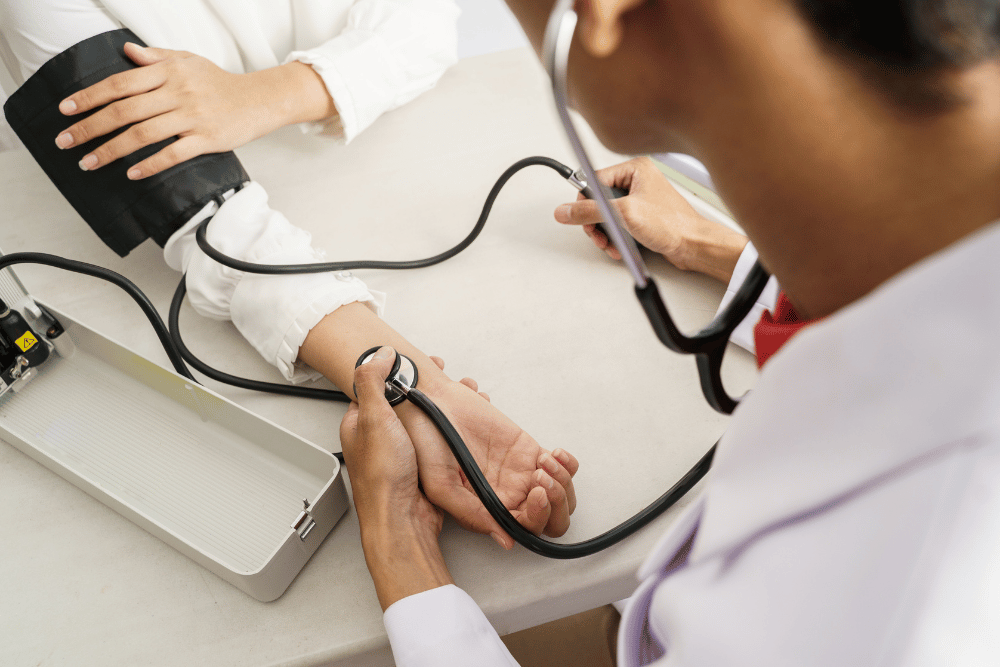The Importance of Preventive Care
Taking care of your health before issues arise is the best way to ensure a long, happy, and active life. Prevention is key!
When was the last time you visited a doctor, not because you were feeling unwell, but simply to ensure you’re in good health? Preventive care is all about staying ahead of potential health problems, ensuring that your body and mind are in optimal condition. Think of it as regular maintenance—just like you would for a car or a home. Let’s dive into why regular check-ups are so important and what preventive care looks like for different stages of life.

Why Preventive Care Matters
-
Early Detection Saves Lives
Many serious conditions, such as cancer, diabetes, and heart disease, can be treated more effectively when caught early. Regular health screenings allow doctors to identify and manage these issues before they become major problems. -
Cost-Effective in the Long Run
While a doctor’s visit might feel like an added expense, preventive care often saves you money by reducing the need for expensive treatments or hospital stays later. -
Promotes a Healthier Lifestyle
Preventive check-ups encourage healthy habits by monitoring key health indicators like cholesterol, blood pressure, and weight. Doctors can provide tailored advice to improve your overall well-being. -
Improves Quality of Life
By addressing potential health concerns early, you’re less likely to experience the discomfort or limitations that come with untreated conditions. Staying proactive means staying active!
Common Preventive Care Measures by Age Group
Here’s a breakdown of essential preventive care practices, tailored to different stages of life:
Children and Adolescents
- Immunizations: Follow the recommended vaccine schedule.
- Vision and Hearing Tests: Early detection of issues supports better development.
- Growth Monitoring: Regularly check height, weight, and developmental milestones.
- Dental Check-Ups: Begin as soon as the first tooth appears.
Young Adults (20s–30s)
- Annual Physical Exams: A baseline for overall health.
- Sexual Health Screenings: Tests for STDs and contraceptive guidance.
- Mental Health Assessments: Recognize and address stress or anxiety early.
- Skin Checks: Monitor moles or skin changes for early signs of skin cancer.
Middle-Aged Adults (40s–50s)
- Blood Pressure and Cholesterol Tests: Key indicators for heart health.
- Diabetes Screening: Particularly for those with a family history or risk factors.
- Cancer Screenings: Mammograms, colonoscopies, and prostate exams, as appropriate.
- Bone Density Tests: Especially for women approaching menopause.
Seniors (60s and Older)
- Vaccinations: Flu, pneumonia, and shingles vaccines are critical.
- Hearing and Vision Tests: Maintain independence and safety.
- Cognitive Health Checks: Monitor for early signs of dementia or Alzheimer’s.
- Fall Risk Assessments: Reduce the likelihood of injuries.
Tips for Making Preventive Care a Habit
- Schedule Appointments in Advance: Plan annual check-ups at the start of the year.
- Track Your Health History: Keep a record of screenings, tests, and results.
- Communicate Openly with Your Doctor: Share all symptoms, even minor ones.
- Follow Up: If something is flagged during a screening, don’t delay further tests or treatments.
Conclusion
Preventive care isn’t just about avoiding illness; it’s about embracing a proactive approach to health that ensures a better quality of life. By staying on top of regular check-ups and screenings, you’re investing in your future self. So, go ahead—schedule that check-up you’ve been putting off. Your body will thank you!





